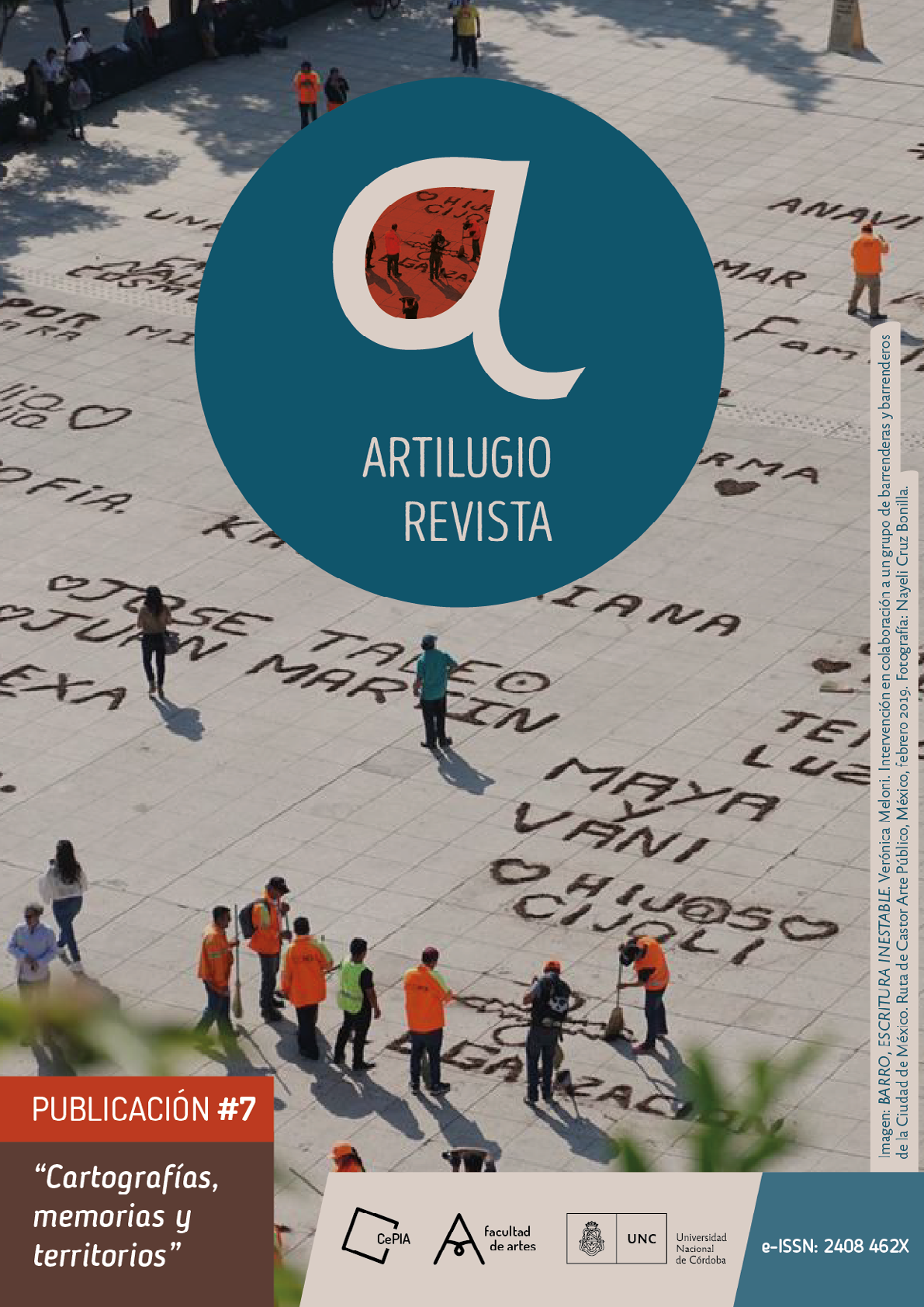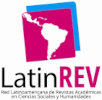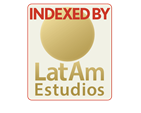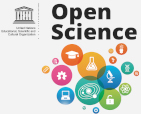“We Are United, Not by Love, but by Fright": Re-mapping the Argentine Theater Scene During the Last Dictatorship
DOI:
https://doi.org/10.55443/artilugio.n7.2021.34560Keywords:
Mapping, Dictatorship, Performing Arts, MetaphorAbstract
The following article reflects on shared elements among diverse experiences in the Argentine theater scene during the last civic-military dictatorship through two lenses: an aesthetic lens and a sociological lens. With the latter, we advance an expanded cartography of scenic practices that took place in the city of Buenos Aires, as well as a conceptualization of “mapping,” a review of the theater histories that have legitimized a particular canon, and a handmade cartography that includes all the experiences. This new map includes varied experiences, confirming the hypothesis that—contrary to canonical sense— the practices of intervention, resistance, activist, and/or clandestine practices mostly took place in the same areas of the city as the theater that occupied the center of the field. Our second hypothesis concerns aesthetics and argues that metaphor is, perhaps, the most frequently shared resource among these counter-establishment practices. In theater, the use of metaphor has long been studied as a mode of indirect resistance during several twentieth-century dictatorships, but it is often thought that activism, unlike theater, resorts to more direct language. Questioning this assumption, we propose the hypothesis that the central theater in the field and activist interventions share the use of metaphor as a privileged aesthetic resource to avoid censorship and persecution.
Downloads
References
Dubatti, J. (2012). Cien años de teatro argentino. Buenos Aires: Biblos.
Gilman, C. (2003). Entre la pluma y el fusil. Debates y dilemas del escritorrevolucionario en América Latina. Buenos Aires: Siglo XXI.
Girotti, B. y Verzero, L. (2016, 3-5 de noviembre). Teatro y dictadura: Avances y perspectivas de una cartografía en construcción. IX Seminario Internacional Políticas de la Memoria “40 años del golpe cívico-militar. Reflexiones desde el presente”. Centro Cultural de la Memoria Haroldo Conti. Buenos Aires, Argentina.
Graham-Jones, J. (2000). Exorcising history. Argentine Theater under Dictatorship. London: Associated University Presses.
La Rocca, M. (2012). El delirio permanente. El Grupo de Arte Experimental Cucaño (1979-1984) [tesis de Maestría en Investigación en Humanidades, Universidad de Girona]. Girona, España.
Longoni, A. (2012a, abril). Zona liberada. Boca de sapo, VIII(12), pp. 47-51. Recuperado 2021, 8 de julio de http://www.bocadesapo.com.ar/biblioteca/bds/BdS12.pdf
Longoni, A. (2012b, diciembre). El delirio permanente. Separata, XII(17), pp. 3-20. Recuperado 2021, 8 de julio de http://ciaal-unr.blogspot.com/
Manduca, R. (2019). Entre la centralidad del dramaturgo y la producción colectiva: experiencias teatrales e izquierdas en la transición de la dictadura a la democracia [ponencia]. X Jornadas de Jóvenes Investigadores. Instituto de Investigaciones Gino Germani, Facultad de Ciencias Sociales, UBA. Recuperado el 2021, 8 de julio de http://jornadasjovenesiigg.sociales.uba.ar/eje-4/.
Pellettieri, O. (1997). Una historia interrumpida. Teatro argentino moderno (1949-1976). Buenos Aires: Galerna.
Pellettieri (Dir.) (2001). Historia del teatro argentino en Buenos Aires. El teatro actual (1976-1998). Buenos Aires: Galerna.
Risler, J. y Pablo A. (2013). Manual de mapeo colectivo: recursos cartográficos críticos para procesos territoriales de creación colaborativa. Buenos Aires: Tinta limón.
Sava, A. (2006). Desde el mimo contemporáneo al teatro participativo. La evolución de una idea. Buenos Aires: Ediciones Madres de Plaza de Mayo.
Verzero, L. (2012a, septiembre). Performance y dictadura: Paradojas de las relaciones entre arte y militancia. ERAS (European Review of Artistic Studies), 3(3), pp. 19-33. Recuperado el 2021, 8 de julio de http://www.eras.utad.pt/docs/10%20TEATRO.pdf.
Verzero, L. (2012b, 4-6 de octubre). La provocación como forma de activismo artístico-político (y viceversa) en dictadura [ponencia]. V Seminario Internacional Políticas de la Memoria: Arte y Memoria. Miradas sobre el pasado reciente. Centro Cultural de la Memoria Haroldo Conti. Buenos Aires, Argentina. Recuperado el 2013, 20 de abril de http://www.derhuman.jus.gov.ar/conti/areas/ep/seminarios.shtml#.UXG1KbWQVqW.
Verzero, L. (2013a, mayo). Prácticas resignificadas: Continuidades estéticas a través del último golpe de estado en Argentina. Apuntes de teatro, (135), pp. 20-31.
Verzero, L. (2013b). Teatro militante: Radicalización artística y política en los años ‘70. Buenos Aires: Biblos.
Verzero, L. (2016). Entre la clandestinidad y la ostentación: Estrategias del activismo teatral bajo dictadura en Argentina. En G. Remedi (Ed.), El teatro fuera de los teatros. Reflexiones críticas desde el archipiélago teatral (pp. 87-104). Montevideo: Universidad de la República.
Verzero, L. (2017, diciembre). Clandestinidad, oficialidad y memoria: Planos y matices en las artes escénicas durante la última dictadura argentina. Anagnórisis. Revista de investigación teatral, (16), pp. 147-171. Recuperado el 2021, 8 de julio de http://www.anagnorisis.es/pdfs/n16/LorenaVerzero(147-171)n16.pdf.
Published
How to Cite
Issue
Section
ARK
License
Copyright (c) 2021 Lorena Verzero

This work is licensed under a Creative Commons Attribution-NonCommercial-ShareAlike 4.0 International License.




































